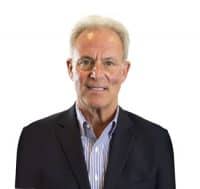Exemplifying the True Meaning of Solution Provider Partner: An Interview with Kevin Lynch, Mike Grady, and Rex Gillette
EDITOR: Tell us what your current role and responsibilities are.
GILLETTE: I am currently vice president of retail sales for ADT/Protection 1, where I am responsible for retail national account sales. I first started in the industry in 1983 working for Bob Oberosler and Bob McCort at Hecht’s Department Store as a store-level LP associate. I joined Sensormatic Electronics Corporation in 1984 and have worked in this industry my entire career. Over the years, I have held a variety of sales positions starting as a sales rep, moving on to sales management roles including managing director of Asia Pacific operations and vice president of retail national accounts for Sensormatic. I was also part of the Vector Security team for two years before joining Protection 1 in 2010, which then became a part of the ADT team in 2016.
GRADY: I’m approaching my 35th year with Vector Security. During that time, I have served in many capacities, including sales, sales management, general management, and corporate marketing and support. Currently, I’m responsible for leading the Vector Security Networks national sales and CRM effort. Vector Security Networks is the business line within Vector Security that provides single-source solutions for physical security and managed network services.
LYNCH: Currently, I am the executive director of business development for Johnson Controls Retail Loss Prevention Division in North America. I am on the board of directors of the Loss Prevention Foundation, and I am the company’s representative on the vendor advisory board of LP Magazine. I started in 1984 with Sensormatic. We now operate as Tyco Retail Solutions, which is owned by Johnson Controls.
EDITOR: Talk about the LP executive when you began in this business, their priorities and mission, and how it is different or the same today.
GILLETTE: I think the mission has basically remained the same throughout the years, helping retailers control their losses and improve their profits. What has changed is the technology and tools that help LP executives bring greater value to their organizations. Back in the day, for the most part, LP wasn’t directly part of the executive-level discussions. Today, the LP executives are an integral part of the overall business.
GRADY: Years ago, the average LP executive concentrated and focused almost exclusively on shrink, physical security, and safety. Today, the risks have changed, and LP professionals are addressing issues and challenges that span the entire organization. Physical security threats, terrorism, and the loss of proprietary information are high-level risks that are beginning to fall under the LP area of responsibility. They are interfacing much more with other teams, such as IT and marketing, within their organizations to become more effective. When I meet with LP executives today, I feel they have a much better sense of the overall business and can identify what is driving their success, and how they can contribute to the bottom line.
LYNCH: When I started in the business, the customer’s title was security director. These individuals were typically retired state policemen or retired FBI agents whose job performance was predicated on how many shoplifters they apprehended. If you see how the title has changed, it reflects a change in the skill set needed to be successful in the retail landscape today. Asset protection vice presidents are now valued contributors in the executive suite. The best LP executives are as concerned about sales and operations as they are about shrinkage reduction. These men and women are return-on-investment business people.
EDITOR: Have you changed how you do your job from yesterday to today?
GILLETTE: No, my job is, and will continue to be, helping our customers meet and beat the challenges they face through innovative technology. I have also focused on forging strong relationships with the LP executives and maintaining those relationships through the years.
GRADY: Since the majority of my career has been in sales and sales leadership, I would have to say that my concentration, past and present, is driving my team to create new business opportunities and grow market share. My leadership style has most certainly changed as I continue to work on developing my ability to lead and manage multiple generations of team members, all with different values and needs.
LYNCH: Today’s vendors that sell to LP departments need to be more tech savvy and solutions-oriented than ever before. The days of making your quota selling EAS tags is over. The way the customer is buying today is based on an expanded understanding of loss. For example, online purchases with in-store pickup now dictate that salespeople need to be up to speed on data analytics, RFID inventory, and more sophisticated video solutions. The constant pressure to reduce costs means the sales person must understand self-checkout, mobile POS, and more. All these new areas bring new loss prevention requirements and challenges to executives. They are challenging their vendor partners to get creative on how to combat these avenues of loss.

EDITOR: What do you respect most about today’s LP leaders?
GILLETTE: Unlike a lot of industries, our LP executives come from within the industry. Most started out in store-level positions and have worked their way up to executives based on their track record, experience, and knowledge. I respect and admire that attribute in our industry.
GRADY: Without a doubt, I most respect their ability to develop teams that are cross-functional and engaged in multiple aspects of the business. From day one working in the retail space, I have always been impressed with LP leaders’ team building and developmental skills and strategies. They are exceptional head coaches and team managers.
LYNCH: The best LP executives aren’t afraid to step out and try new things. Bob Oberosler using facial recognition, Mike Lamb installing electronic public view monitors in creative ways, and Mark Stinde deploying ClickIt’s Virtual Line Up are great examples of thinking outside the box. In addition, they all evaluate projects based on research, pilot programs, and dashboards.
EDITOR: What troubles you about some of the leaders today?
GRADY: The slow pace of adapting or adjusting to changes in technology. We work in an environment that is networked together, including all the components and devices LP relies on to mitigate risk and protect people and property. LP leaders must get more in sync with the functionality, benefits, and risks of living on the network. They need to develop relationships with their IT teams and have a seat at the table when the CIO or CTO are building a prevention strategy.
LYNCH: I think today’s leaders are doing the best they can. The challenge is that they don’t have the time to really analyze and test solutions. And of course, there is constant budget pressure. Sometimes they leave analysis up to procurement, who doesn’t understand the full value chain. I like to think a strong vendor partner goes “beyond the RFP” for customers we know well. We use our relationship to call out totally new areas of value and savings. I am troubled if time and other pressures mean that our team can’t come to the table with real, integrated solutions, instead of just an RFP bid.
EDITOR: What do you want the buyer or LP executive to believe about you and your company?
GILLETTE: In May of 2016, ADT was purchased by Apollo Global Management and merged with Protection 1. Protection 1’s CEO Tim Whall was named CEO of the combined organization bringing his passion for customer service to the company at a national scale. In less than two years, the company has worked hard to redefine itself and adopt Protection 1’s mission of delivering world-class customer service to our clients. We have brought personal, high-touch customer service to ADT at an unmatched nationwide scale.
Here are a few examples. In most cases, we now offer same-day or next-day service and show up when we say we are going to show up. We offer our exclusive Tech Tracker service that lets our customers know when their service technician will arrive, his or her qualifications, and even a picture of the technician. We have unplugged our automated phone system—people answer our customer calls. We offer dedicated teams in our National Account Operations Center that work together managing every aspect of our national account and enterprise customers’ accounts, from installation and service to monitoring alarm activity and billing. And we now offer dedicated security-only network design, installation, and monitoring along with a host of cyber-security solutions.

GRADY: We are a company with strong character and a culture of innovation and leadership. We value our employees and our customers. We can adapt to change and are financially stable. As a one-source solution for managed network services and physical security, Vector Security Networks is a provider who understands your business and can create and integrate the right mix of solutions. This value that we bring becomes increasingly important as LP continues to work cross-functionally within the business.
LYNCH: I want the LP executive to know that I have his or her back. I invented a term that I call the “commutative property of credibility.” This is the notion that if you maintain your “personal credibility” with the customer, then the company you represent will have credibility. I was profoundly affected by the scene in Miracle on 34th Street where the Santa Claus tells the child to go across the street to buy a better-made product at a lower price. I can’t tell you the number of times I have done this in my career. I took a page from Ernest and Julio Gallo and made the comment to customers: “We will sell no system until it’s time.” If it doesn’t work, take it back, and you maintain your credibility with the customer.
EDITOR: If it is not always about price, what should it be about?
GILLETTE: It should always start with customer service and understanding the true needs of the clients and offering leading-edge technologies to meet those needs. If you can meet the needs of your customers with a product or service they need, not just what a company has to sell, then often decisions based solely on price become less prevalent.
GRADY: Value and reputation. As I mentioned earlier, our value is in our ability to act as a single-source solution for managed network services and physical security. We deliver white-glove professional services through a single point of contact. We have the strength of a national company, but remain focused on personalized, prompt service.
LYNCH: It should be about trust. When things go south in the field, you don’t want to have to put out an APB for your vendor. Good salespeople look at the signing of a deal as the start of the hard work, not the end of it.
Read the full interview, “The Three Amigos,” to hear some funny and poignant LP anecdotes from Lynch, Grady, and Gillette. The original article was published in 2018. This excerpt was updated November 28, 2018.


